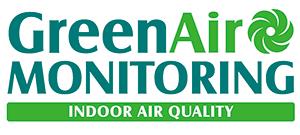 Add My Company
Add My Company
Sign In

Coronavirus has impacted every part of our lives and has sparked a significantly increased interest in good indoor air quality. Indoor air quality has always been a factor in creating and maintaining a healthy, safe and productive workplace environment so as people return to the office, start to go shopping or resume other leisure activities (it’s easy to forget that these buildings are also workplaces) it is quite rightly under the spotlight.
There are many factors that can contribute to a poor indoor environment and much has been written about both internally and externally sourced pollutants (i.e. VOCs, aerosols, gases etc) over the lifecycle of a building from design, through construction and day to day operation. However, the most important means of control in daily use is ventilation, and this is even more so to assist in limiting risk and possible exposure to coronavirus if present. So, one could simply open some windows, but where a workplace is enclosed, i.e. one can’t open the windows then one has to rely on the ventilation system.
How does one know how good the air quality is and how best to improve it without a baseline measurement?
The quote “If you can’t measure it, you can’t improve it.” is credited to Peter Drucker a business management theorist, however there are many variations on this premise amounting to the same thing for example, “Measurement is the first step that leads to control and eventually to improvement. If you can’t measure something, you can’t understand it. If you can’t understand it, you can’t control it. If you can’t control it, you can’t improve it.” - H James Harrington CEO and quality guru. This piece is not about who said what, however the fact that the premise is frequently cited does demonstrate its soundness as a management tool in the right situation. And indoor air quality is one of them. If air quality isn’t measured, how do we know how bad, or even good, it is? Furthermore, how do you know if something needs addressing to make that improvement.
In an occupied building an air quality survey can help to establish if the system is working effectively and if not, the appropriate remedial works can be implemented to ensure it’s doing its job effectively.
Green Air monitoring are independent specialists in indoor air quality testing and monitoring with extensive expertise in general testing, and also associated with both the WELL Standard and BREEAM accreditations. Please get in touch to discuss your needs.
For more information on If you can’t measure it, you can’t improve it talk to Green Air Monitoring Ltd
Enquire Now
List your company on FindTheNeedle.
